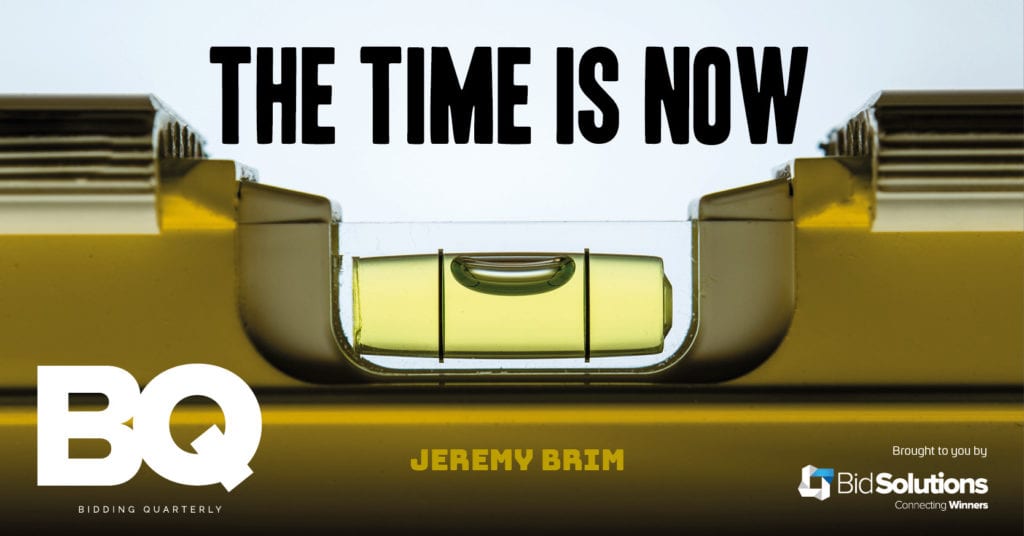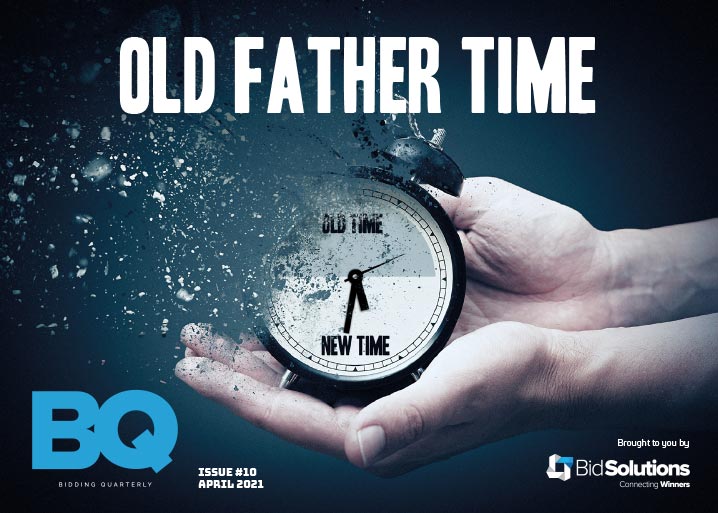
After sponsorship by senior people, the second biggest success factor we find in business growth is a having a consistent work winning approach and language baked into the DNA of the organisation, enabled by strong people development.
Personal development has moved on a great deal in the last decade. But perhaps not so much in work winning skills. With the economic and societal change we now face, with an ever acute focus on sustaining organisations – it’s time development in winning work caught up.
In our research we have found a real shift in how capability is nurtured and advanced.
Learning concepts that have receded:
- One size fits all
- Teaching people linear tasks
- Teaching everyone the same thing and teaching it once
- Fixed multi-day training programmes
- Crude assessments based on instant recall
Learning concepts that have endured the test of time:
- The concept that learning is important
- The idea of self-development
- Employers that invest in learning and development are good places to work
- The importance of development for all
- An understanding of how humans learn
We’ve also noted the 70-20-10 model for learning and development, a commonly used training formula created in the 1980s by researchers at the Center for Creative Leadership in Greensboro, North Carolina. The model outlined the optimum split of learning consumption, suggesting that individuals obtain knowledge, skills and abilities in their roles through a mixture of sources:
- 70% from on-the-job experience
- 20% from social sources such as interactions with others
- 10% from formal structured training
In 2018, Training Industry Inc released an updated report. They found the overall blend is now closer to 55-25-20, with higher quality and more impactful methods in live training and the huge availability of online content.
I’ve written lots on how we advise creating and driving momentum in win rates improvement, by mobilising structured learning for bidding ‘champions’ across your business – creating an initial ‘hockey stick’ in bidding understanding. The 20%.
And we’ve talked about landing a single, well-sponsored bid process (usually digitally) where all staff can access it as their constant online bid process and digital reference point. This provides them with a consistent roadmap and governance to follow, perhaps with some embedded guidance or training material to refresh or up-skill bid teams right when they need it, on live bids. The 55%.
What I’d like to amplify this year is the glue between those two – the dramatic impact of the 25%, social learning.
Social learning theory suggests that people learn by observing the behaviour of others, their attitudes and the outcomes. Albert Bandura, a Canadian-American psychologist and Professor Emeritus at Stanford University, hypothesised that social learning spans the gap between behaviourism and cognitivism.
“Most human behaviour is learned observationally: from observing others, one forms an idea of how new behaviours are performed, and on later occasions this coded information serves as a guide for action.” – Albert Bandura
Bandura found that with traditional structured learning methods alone, most people only recall around 10% of the information taught within 72 hours. Staggering right? Research shows that social learning delivers a 75:1 return on investment (ROI) ratio compared to formal training alone and unlocks the spread of knowledge across organisations. It aids talent retention. When we share knowledge, we feel we’re part of something bigger – improving employee satisfaction, engagement and attachment to the company.
We still think structured learning is an important starting point. But we see social learning as an opportunity to build on that initial engagement – to drive adoption for the long term, encouraging learners to pull knowledge as required from experts within (and beyond) their organisations, instead of just having knowledge pushed on them once.
We believe you can position capture and bid functions at the heart of leveraging social learning in winning work across organisations. Approaches can include creating communication channels for experts to help others, communicating about great contributions, encouraging an environment that rewards performance, and creating a place where staff can ask questions and get answers to promote a social culture of collaborative learning. You could consider reverse-mentoring – engaging senior stakeholders (through live bids and outside the war room) to coach them on what is required in terms of skills and inputs from a bid perspective but also behaviours from the business, engendering buy in.
You could also spend time with the grads and apprentices in your business, getting them aligned with bidding best practice early – so when they rise through the business, they already understand good work winning practices.
We can tell you it really works. We’re building on our work with our client Quod, the pre-eminent planning consultancy. We landed a 55-25-20 development programme for them in 2019, resulting in a 20% improvement in win rate, 7% reduction in cost of sale and a dramatic step change in the experience and satisfaction in bidding for their people.
We’re now implementing social learning techniques at the heart of our work-winning transformation programmes and seeing our clients reaping the rewards. And to aid the development of our discipline, we’re also sharing these techniques through our participation in The Red Review Patreon community – including interviews with work-winning leaders, running micro-learning sessions and drop-in surgeries, and holding breakfast webinars and online conferences with topical panel debates and guest speakers.
This article was written by Jeremy Brim.
Jeremy works with leadership teams and business owners as a consultant and advisor to plan and deliver sustainable growth through analysis and interventions across the sales cycle. Jeremy has also taken on leadership of the Bid Toolkit, bringing with him a wealth of bidding knowledge and desire to help businesses of all sizes improve their win rates.

